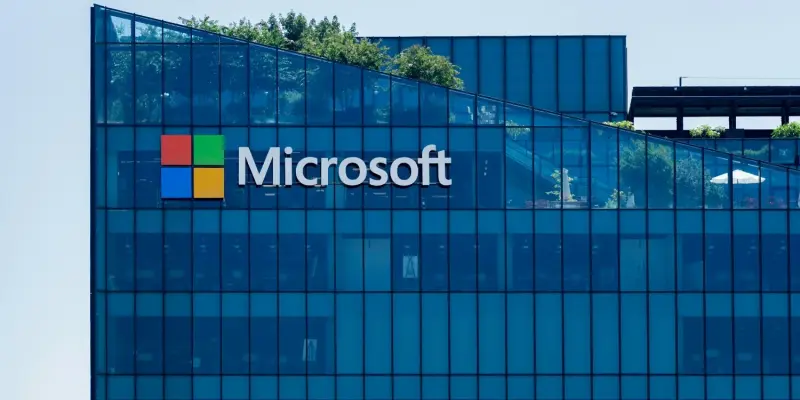A concerning development has emerged in the digital landscape as an email scam meticulously targets users of Microsoft Windows. Craftily devised, the scam effectively emulates official Microsoft purchase notifications, employing an email address that seems genuine—“[email protected].” Recipients are alarmed by substantial, fictitious purchase confirmations that manipulate them into contacting a fraudulent number provided within the email. This scam, cloaked in authenticity, has significant implications for users who unknowingly engage with the number, leading to further deception and potential financial loss.
Understanding the Microsoft Scam Tactics
Mimicking Authentic Microsoft Communications
The email scam capitalizes on mimicking legitimate Microsoft communications. By using “[email protected],” an authentic-sounding email address, the scammers achieve a veneer of legitimacy that deludes recipients into believing the communication is genuine. Deploying a template paralleling common Microsoft purchase notifications, the email subtly urges recipients to take immediate action upon perceiving unauthorized transactions. Such tactics are highly efficient at creating alarm and prompting hasty responses, enabling scammers to lead victims down a path of deception. Victims, lured by the urgency of substantial fictitious purchases, often opt to contact the indicated number, thinking they are reaching out to Microsoft support.
Once contact is made, scammers exploit this misplaced trust by persuading victims to partake in activities such as downloading malware or divulging banking credentials under the guise of securing refunds for the bogus purchases. This might involve asking victims to log into their bank accounts, further exposing sensitive information. Employing further deception, scammers can then steer victims towards downloading software ostensibly required to protect their systems. Unbeknownst to the victim, these downloads are often sophisticated malware designed to harvest further personal and financial data without detection.
Scams Echoing Similar Tactics
The method employed in this Microsoft scam finds parallels in other prevalent scams targeting high-profile tech companies. A striking resemblance has been observed in phishing attempts masquerading as official communications from Google’s email services. These scams similarly harness genuine-looking interfaces to manipulate users into contacting fraudulent numbers. Consistent across these scams is the overarching theme of exploiting users’ trust in recognizable brands. The psychological aspect of these scams plays on users’ confidence in major tech firms, deceptively leading them to feel secure through what seems like official engagement.
A significant rise in tech support scam tactics has been evidenced recently, revealing a sharp increase in such fraudulent activities. The metrics reveal a staggering 137% surge in these scams. This sharp escalation shines a worrying light on the evolving nature of digital fraud, emphasizing a critical need for user vigilance and the adaptation of preventive behavior. Users must recognize that scams are adopting increasingly sophisticated means of impression management, making them nearly indistinguishable from legitimate communications.
Safeguarding Against Scams and Ensuring Security
Recommended Precautionary Steps for Users
In the face of these rising threats, users are advised to enhance their security posture by adhering to several key recommendations. Primarily, ignoring unsolicited communications is an essential step in preventing engagement with potential scams. Any transaction or communication perceived as suspicious should not be addressed impulsively. Verifying financial transactions directly through official channels, such as mobile apps or bank websites, ensures that users maintain control over their actions without succumbing to panic-driven responses initiated by fraudulent prompts. This practice helps cut off the scammers’ influence before they can exploit any further.
Immediate deletion of dubious emails is another protective measure that curtails potential vulnerabilities. Deleting such content not only removes the immediate threat but also fosters a secure digital environment by eliminating the risk of accidental engagement in the future. Increasing awareness regarding the characteristics of phishing scams and sharing information across communities and social networks can document such occurrences, designing a communal line of defense. Cybersecurity education, therefore, forms an integral part of the strategy devised to mitigate personal and collective digital risks.
Emphasizing Continued Vigilance
A troubling new email scam is making waves in the digital world, specifically targeting Microsoft Windows users. This elaborate scheme perfectly mimics official Microsoft purchase notifications, using an email address that appears legitimately from Microsoft—“[email protected].” Recipients, upon receiving these emails, are immediately alarmed as the emails contain confirmations of large purchases they never made. The scam manipulates them further by including a phone number to call, which is part of the fraudulent setup. When unsuspecting individuals call this number, they fall deeper into the scam’s trap, which may lead them to share sensitive information or make financial transactions, putting their security at significant risk. For those not familiar with such tactics, the scam’s veneer of authenticity can be particularly convincing. This method of deception not only affects individual users but poses a broader threat by eroding trust in digital communications. Users are advised to remain vigilant and verify any suspicious emails before responding.

